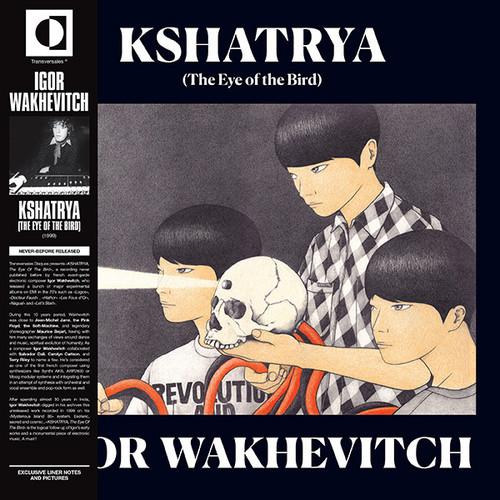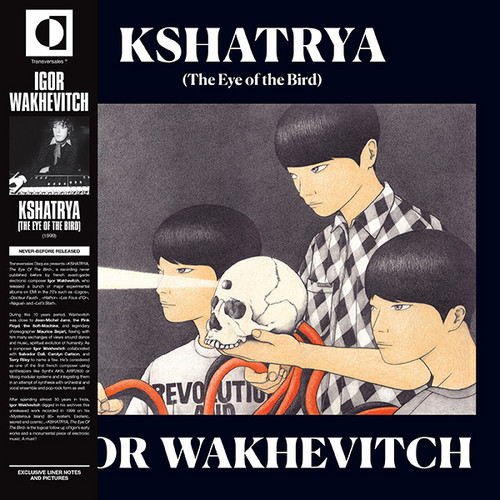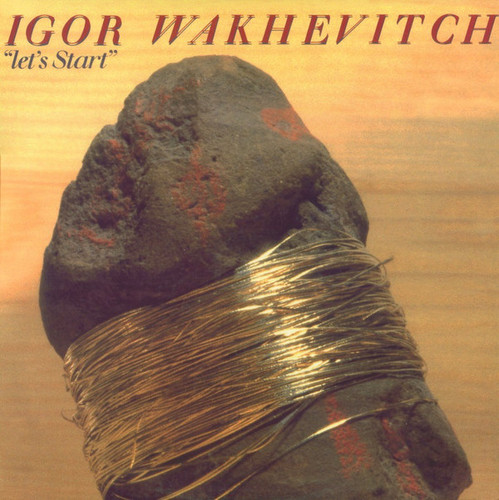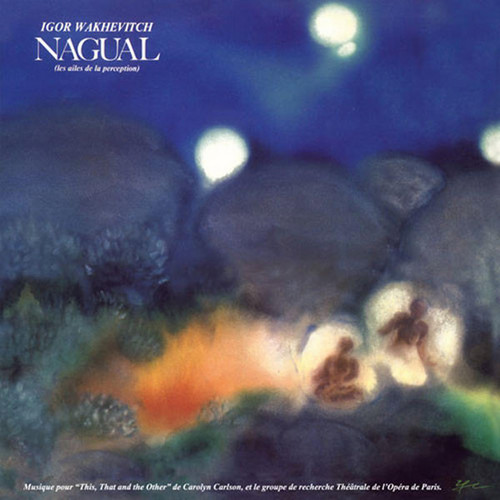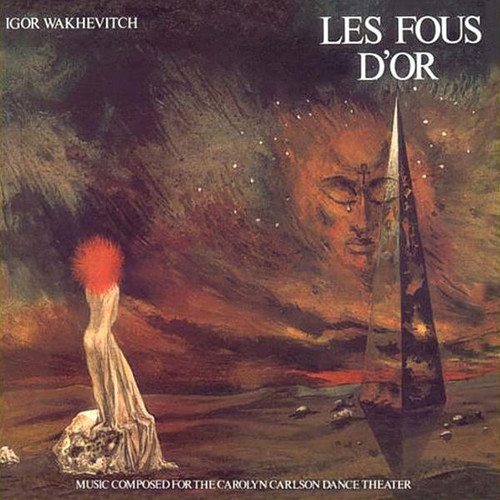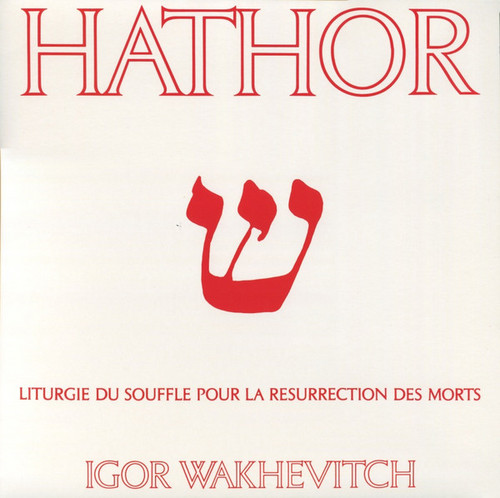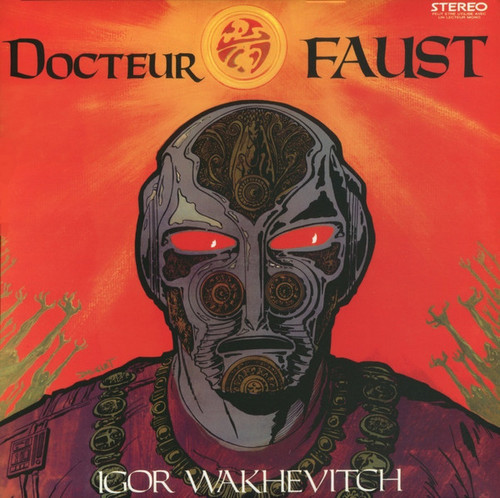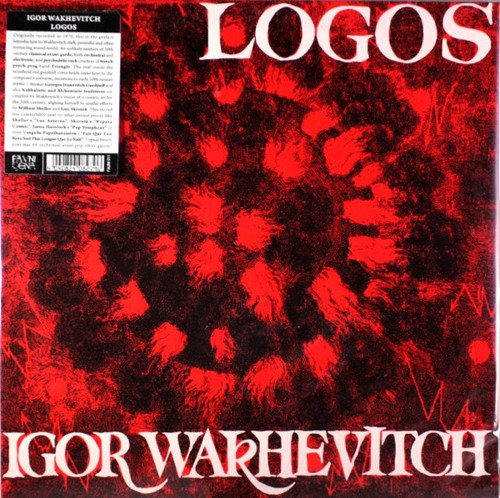Igor Wakhevitch
Kshatrya (The Eye of the Bird) LP
Small repress available. LP version. Transversales Disques presents Kshatrya (The Eye Of The Bird), a never released before recording by French avant-garde electronic composer Igor Wakhevitch. Wakhevitch composed a bunch of major experimental albums in the '70s, such as Logos (1970), Docteur Faust (1971), Hathor (1972), Les Fous D'or (1975), Nagual (1977), and Let's Start (1979). During this 10-year period, Wakhevitch was close to Jean-Michel Jarre, Pink Floyd, Soft Machine, and legendary choreo…
Kshatrya (The Eye of the Bird)
CD version. Transversales Disques presents Kshatrya (The Eye Of The Bird), a never released before recording by French avant-garde electronic composer Igor Wakhevitch. Wakhevitch composed a bunch of major experimental albums in the '70s, such as Logos (1970), Docteur Faust (1971), Hathor (1972), Les Fous D'or (1975), Nagual (1977), and Let's Start (1979). During this 10-year period, Wakhevitch was close to Jean-Michel Jarre, Pink Floyd, Soft Machine, and legendary choreographer Maurice Bejart ha…
Let's Start
His masterpiece "A treat for those into the pioneering works of Terry Riley and Steve Reich in that this combines use of delay lines on keyboards a-la Riley with phasing techniques on voices first explored by Reich" (Mutant Sounds). Originally released in 1979, Wakhevitch's last album before definitely settling down in Auroville (India) was his most meditative and relaxed effort to date. Fruit of his 1978 stay in Israel invited by the "Mishkenot Sha’ananim" Foundation, the album was again…
Nagual
Originally released in 1977, this was (once again) a product of the fruitful association between Igor Wakhevitch and american dancer/choreographer Carolyn Carlson. Compiling some of the pieces specially written for Carlson's "This, that and the other" (created for the Groupe de recherche Theatrale de l'Opera de Paris), the album follows the otherwordly steps of it's predecessor ("Les Fous D'or") in a more calm, relaxed, almost nocturnal way. Inspired by Carlos Castaneda's writings, Nagual is ano…
Les Fous D'or
Released by Pathe Marconi in 1975 and housed in a fantastic surrealist cover designed by his father, russian painter/art director Georges Wakhevitch, this album marks the debut of Wakhevitch's long-standing collaboration with american dancer/choreographer Carolyn Carlson. It also shows the composer's progression into a more esoteric and lyrical grounds: a departure from the violence of his first three albums into quieter yet equally dark and mysterious regions. Divided in two sides (calle…
Hathor
This is probably Wakhevitch's most esoteric and occult-influenced work. Some sort of dark ritual for synthesizer and orchestra inspired by Kabbalistic writings where Igor's trademark bottom heavy electronics pulse, wizz and sweep to a backdrop of heavy tribal drumming. Elsewhere, menacing and majestic spoken word passages open us the doors to the netherworld, leading you into an esoteric sound ritual that sounds spooky, virulent, powerful, droning, entrancing and mystical at the same time. Agai…
Docteur Faust
Housed in a fantastic and menacing sci-fi cover courtesy of Druillet and bearing the famous dedication: "A mes grands amis Robert Wyatt et Mick Rattledge", Igor Wakhevitch's second album was a step beyond it's predecessor into a music alchemy that defies categorisation and the one that started to define his trademark sonic collage of styles and moods. Like the previous record, this was the music for a Norbert Schmucki ballet "Ergonia", premiered at Festival D'Avignon 1971, and featured top frenc…
Logos
Originally recorded as music from a N.Schmucki ballet premiered at Festival d'Avignon 1970, this is the perfect introduction to Wakhevitch dark, powerful and often menacing sound world. An unlikely mixture of 20th century classical avant-garde, both orchestral and electronic and psychedelic rock courtesy of french psych-prog band Triangle. A strong piece which pairs epic choral parts with Wakhevitch's taped electronics and Triangle's hypnotic jamming to form, in typical Wakevitch occult fashion,…
